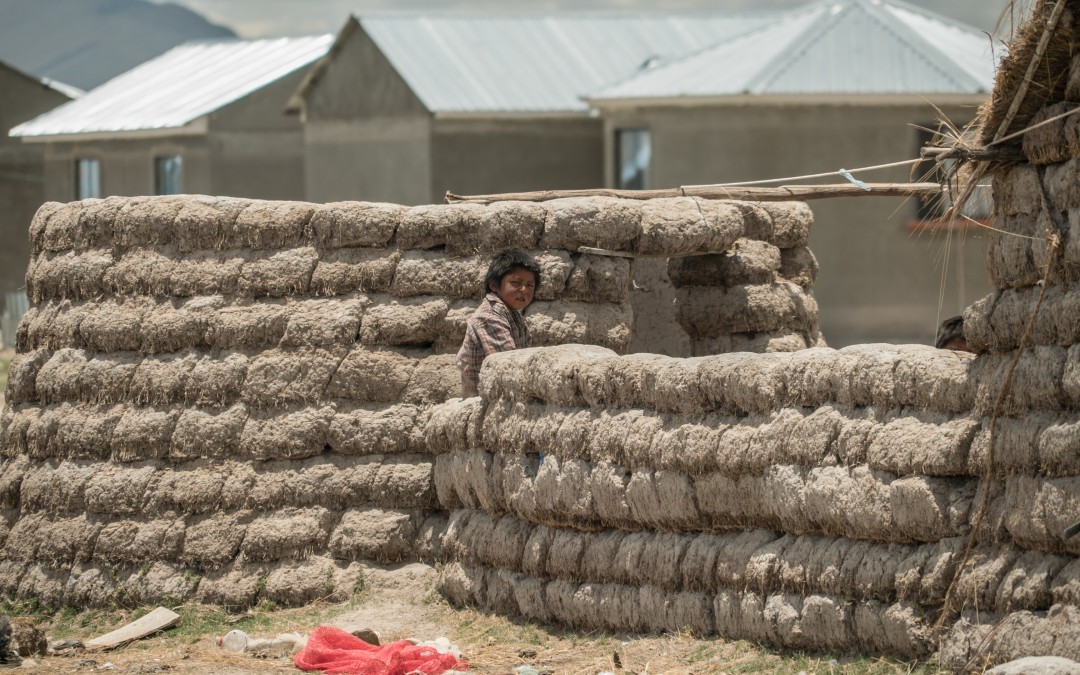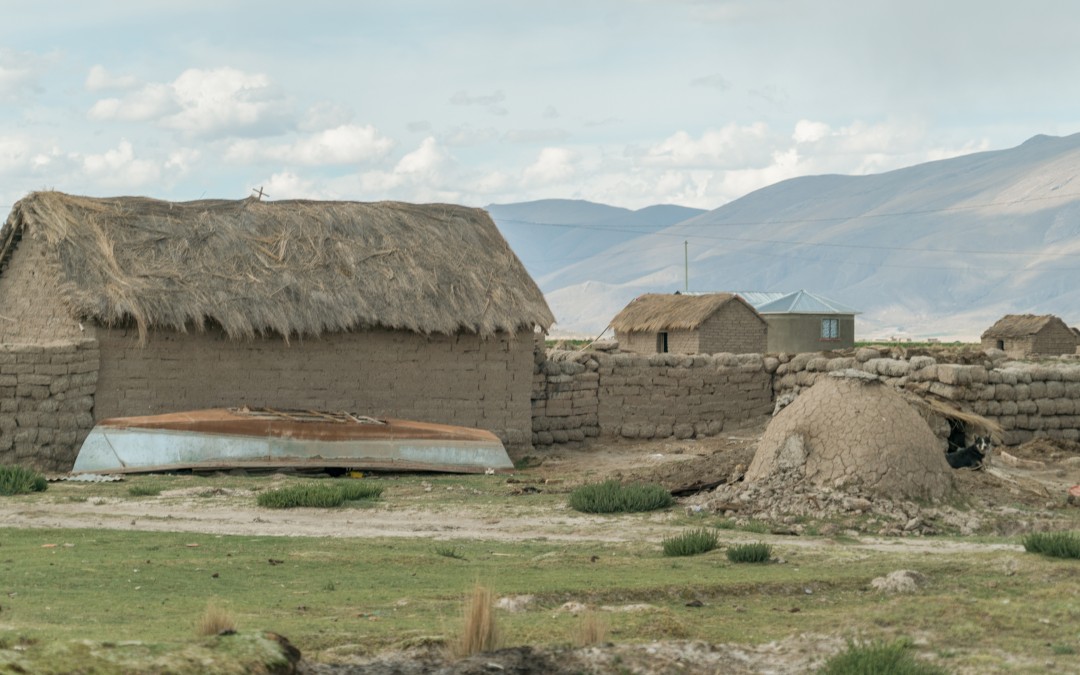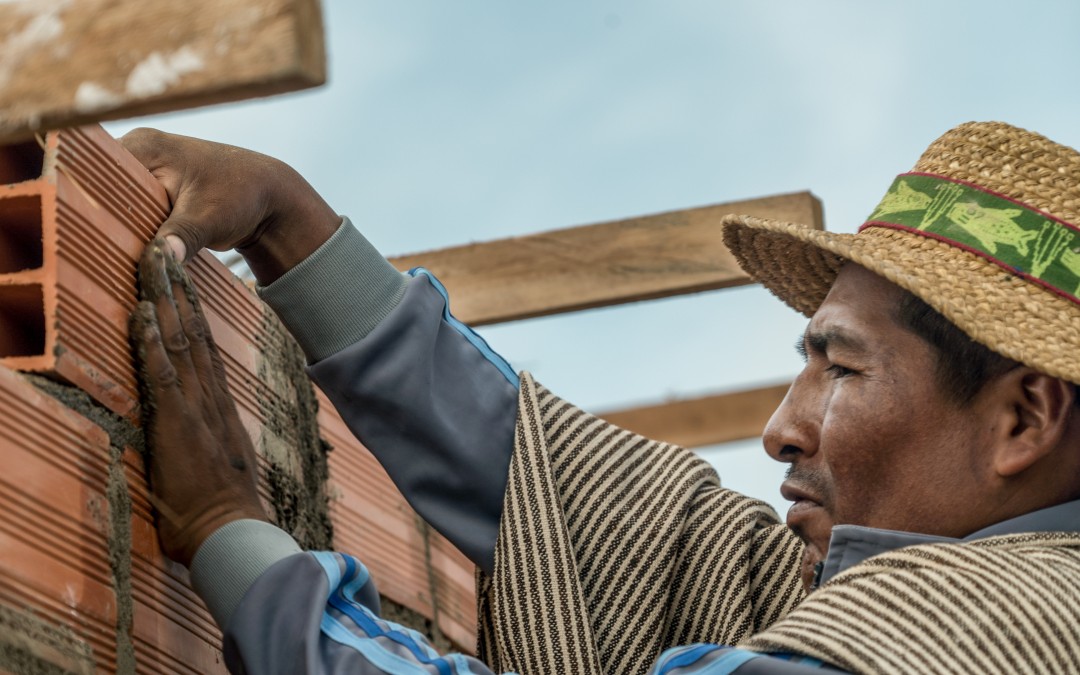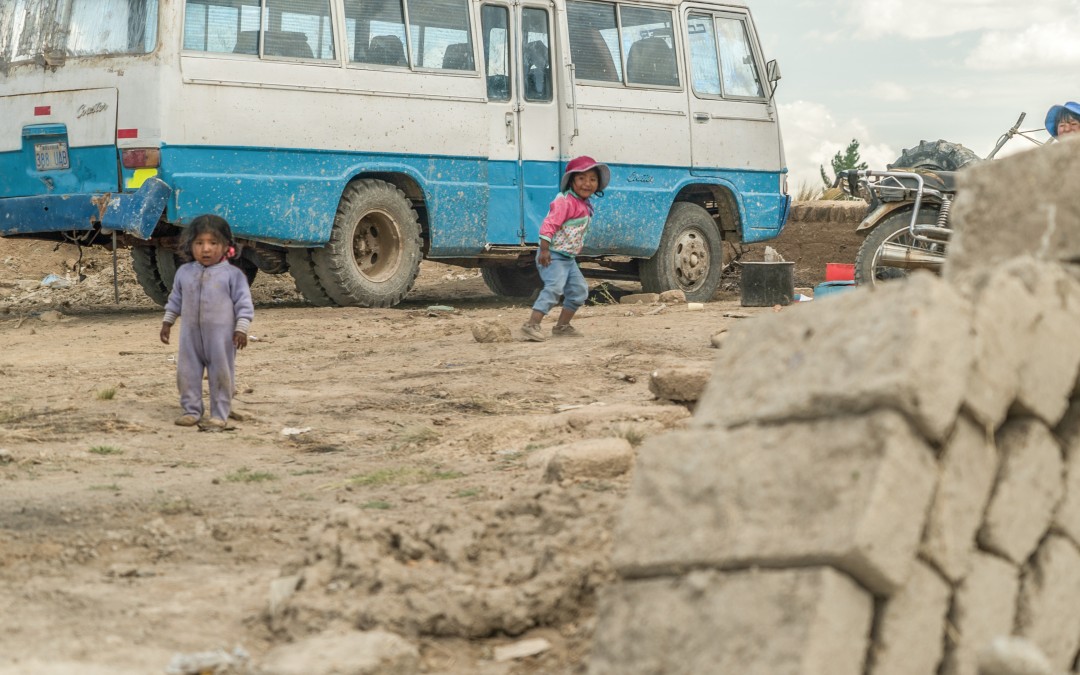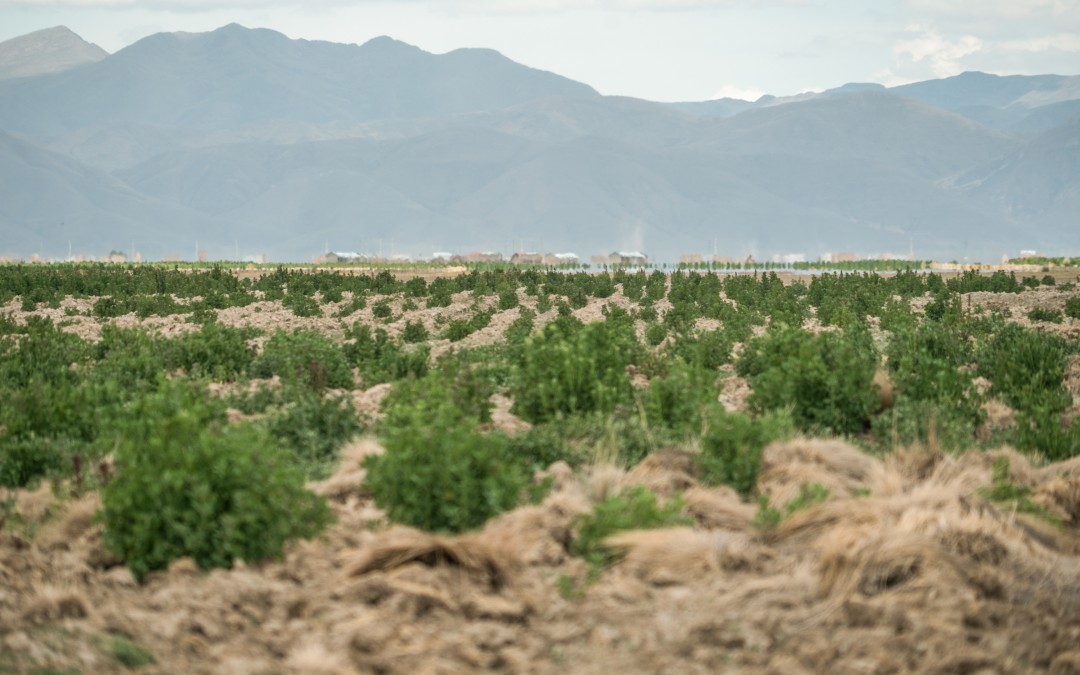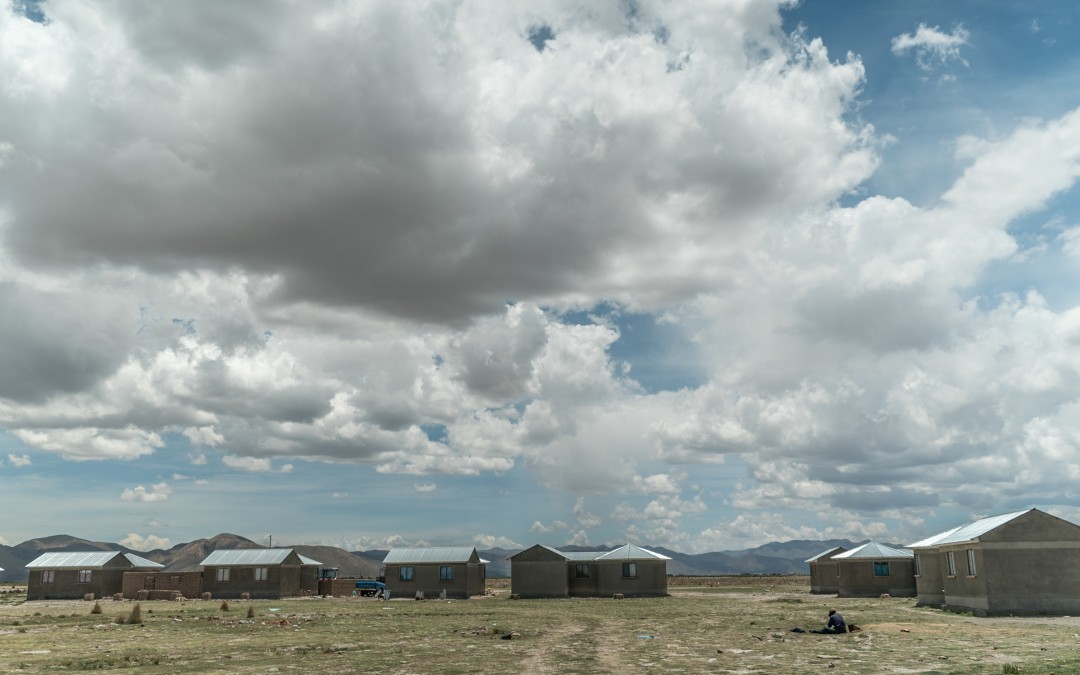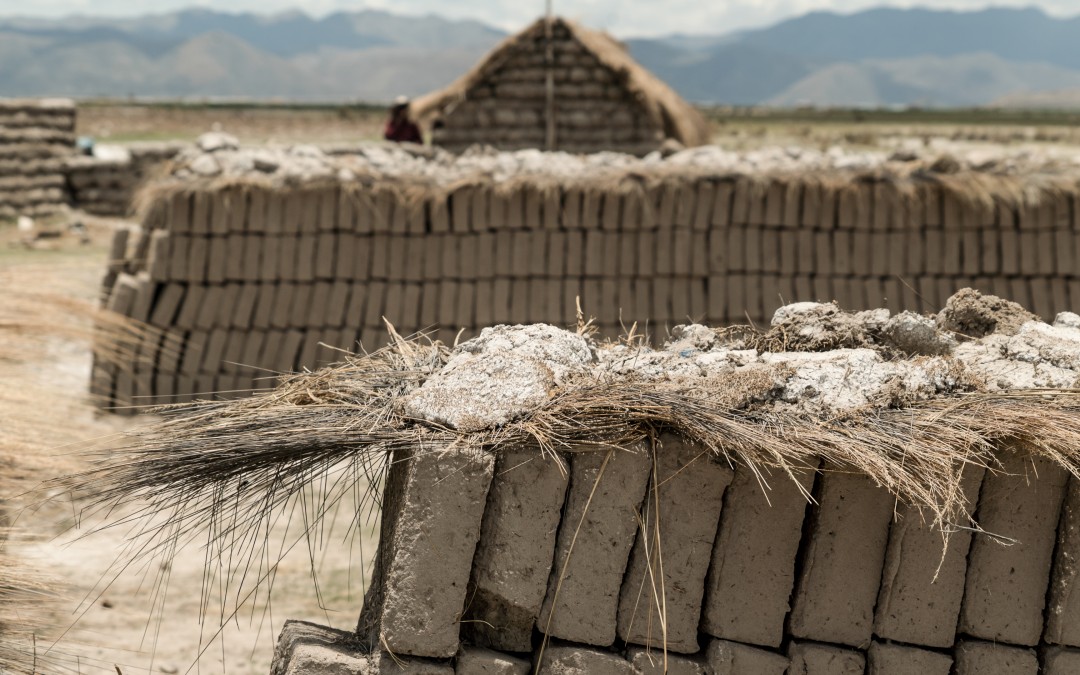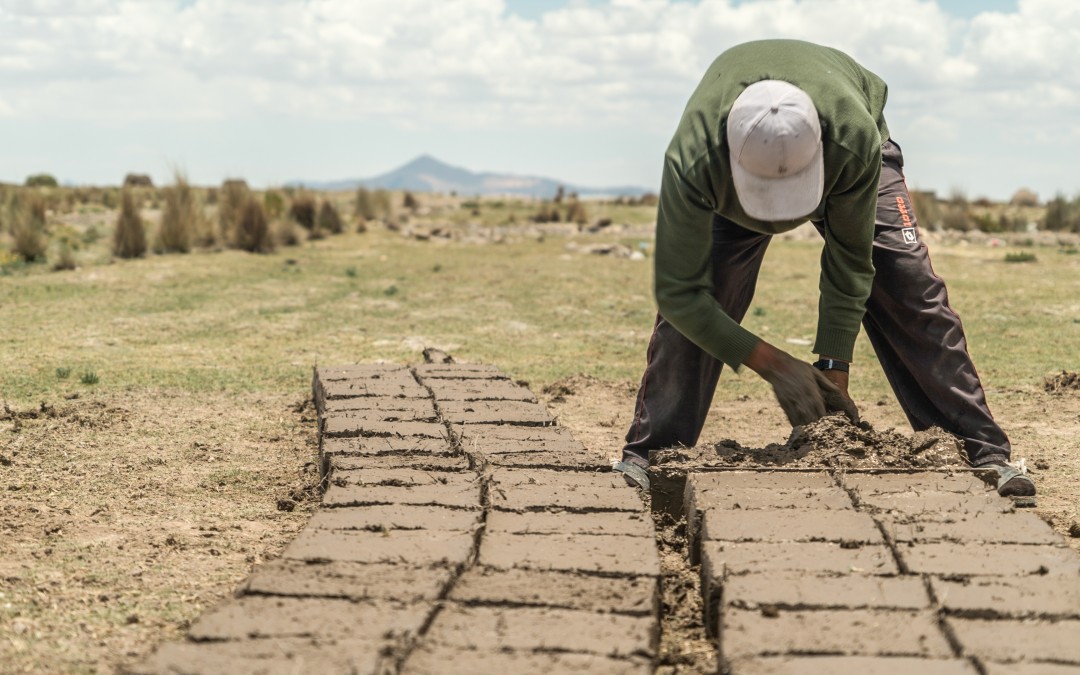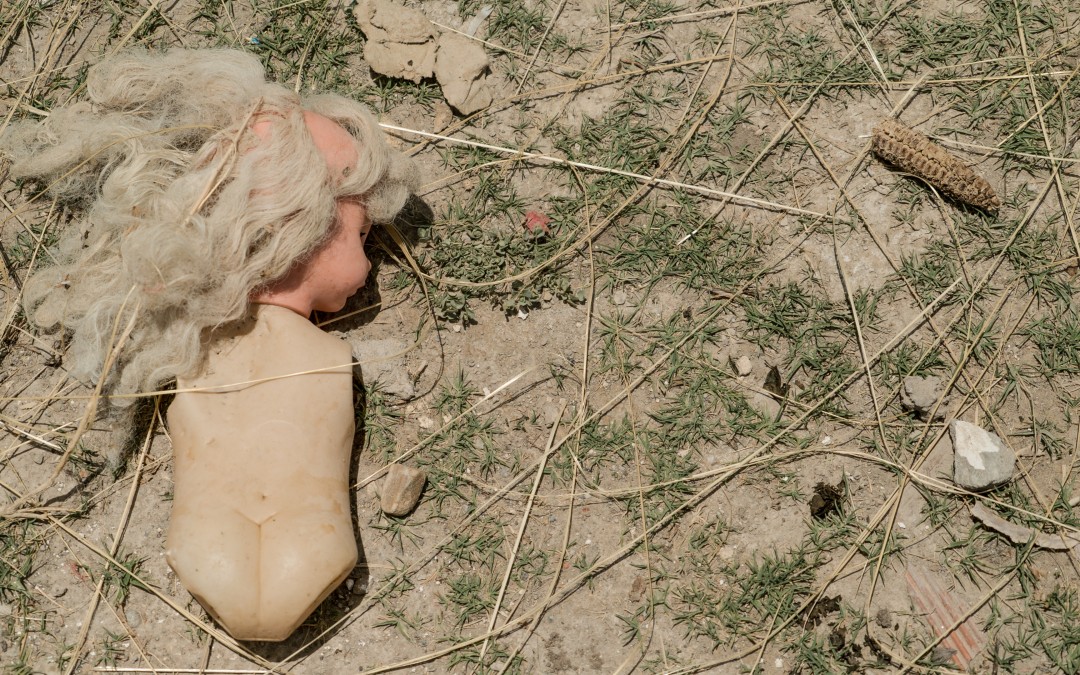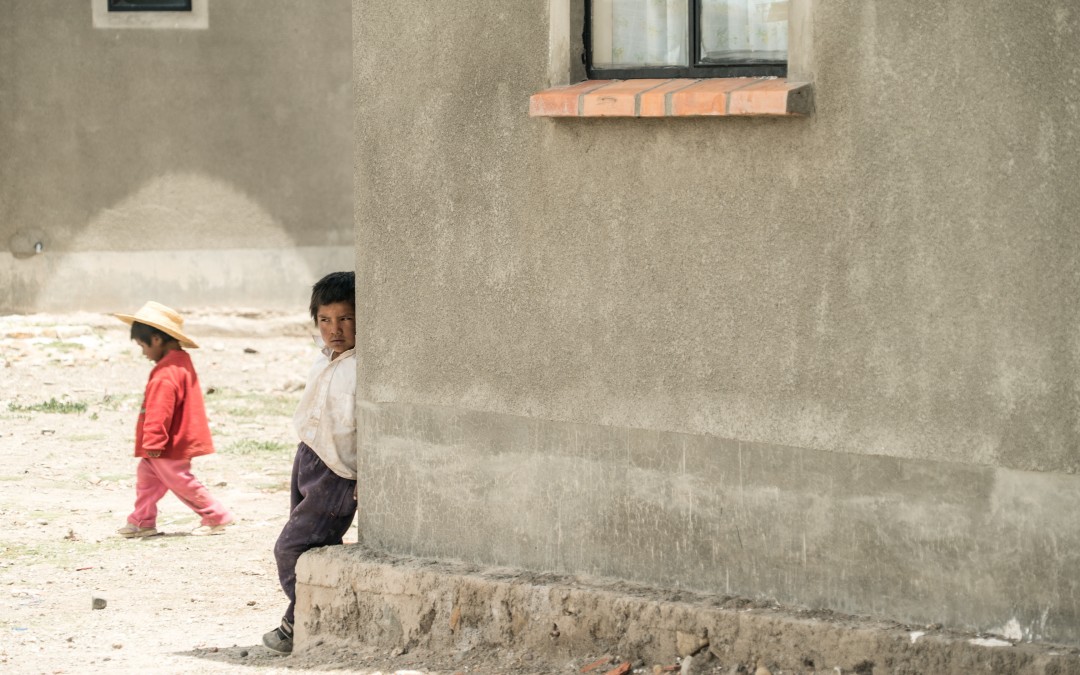A Lot Is at Stake for the Lake People
In colonial times, their ancestors came to an agreement: the Aymaras were to farm the land, and they, the Urus – an indigenous group that came down the Andes from Peru south into Bolivia establishing their communities along rivers and lakes – were to draw their livelihood from the water.
That’s how Luis Valero explains it in a Spanish that is marked by a heavy Quechua accent, while wearing the poncho and sombrero typical of his community. Luis is the mayor of Villa Ñeque, one of three villages inhabited by the “Urus of Lake Poopó” in the Department of Oruro.
The pact became a curse of sorts for his generation, who for after some years has had to chase after the lake as it dwindled, became polluted and was gradually left without any fish, without any flamingos, without the resources that kept them alive. “The lake used to reach much higher and it was deep,” says the 31-year-old man, as if wanting to justify the decision made by his ancestors, even though it meant that the Urus would be left without any land.
“Our forefathers trusted the lake to give us sustenance, but that wasn’t so.”
Don Eulogio, Luis’s uncle and one of the eldest men in the village, recalls that when he was young he only had to walk a few steps from his house to go fishing and the water came up to his knees.
For his nephews, on the other hand, fishing days – whenever there were any – meant spending hours walking to get to that part of the lake that still sustained life, and even spending two or three days away from home in order to catch the fish their wives would later sell at Challapata, Oruro or Cochabamba.
“The lake has dropped and the pollution from the Inti Raymi (a Bolivian mining company] has reached us and has driven the fish more in that direction,” says Don Eulogio, speaking in Quechua, as he points toward a dry area where not a drop of water can be seen.
“How I have suffered pushing my little boat!” laments Luis in turn, as he recalls the years of agony inflicted upon Lake Poopó, which stopped giving of itself and disappeared at the end of last year. It then fell upon the Urus to reinvent themselves. The residents of Villa Ñeque found it necessary to migrate, or go to work for the Aymaras – people they call “the residents” – by farming their land for them or by watching over their herds.
Luis and his brother, Cemiano Valero, age 34, work as bricklayers for an Aymara family in a place called Machacamarca, an hour and half away from Villa Ñeque by road. “Now that the lake has left us, there’s no work,” says Cemiano, perched up on a wooden plank supported by two big barrels, which together serve as a scaffolding, while his brother brings in his direction a shovelful of mortar he has just prepared. “We have had to force ourselves to learn how to build using kiln-fired bricks, because, as Urus, we have always built things out of adobe bricks.”
From that, and from what their wives earn looking after herds, which also belong to the Aymaras, they are able to feed their eleven children.“Our children also have to eat and also study. We no longer want them to be like we are. I, for example, only studied as far as fifth grade elementary, can’t you see?” confesses Luis without being able to hold back his tears.
“But my children…I don’t want them to suffer this way. It’s unfortunate.”
“Everyone thinks about what it will take to survive. Mostly, I have taken care of the herds belonging to the residents. For one year of work they have paid me with ten lambs, which multiplied manifold, and I am now able to feed my family,” relates Wilfredo Zuma, a 35-year-old friend of the Valero family who decided to stay in his community.
But few were able to hold out in the village. Today more than half of the houses lie vacant, even though last year the government provided several of the inhabitants with approximately twenty modern dwellings. Of the 40 families that used to live in Villa Ñeque, now only 15 remain. And that can be seen at festivities and assemblies: every time they try to carry out a project, there are never enough people to perform the task. Now their struggle means not letting their culture disappear the way the lake did.
“The residents say: now the Urus are disappearing. But those of us who live here, we’re able to fend for ourselves,” says Wilfredo defensively.
Even before the death of the lake, experts were referring to the Urus of Lake Poopó as an ethnic minority steeped in poverty and “at risk of disappearing.” But Wilfredo won’t give up. For him, the future lies in nurturing his culture and making it stronger. That’s why he sees as something positive the fact that, given the absence of fish for selling, the women are again doing craftwork – sombreros, ponchos and replicas of putucos, the traditional houses of the Urus – which they then sell to tourists. “The community must stay united,” says Zuma, interlacing his fingers, as his key to not being exterminated.
